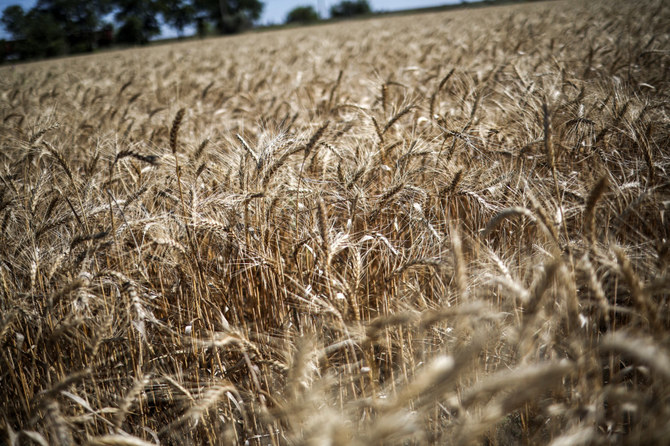Russia softens its attitude on Ukrainian grain corridor

https://arab.news/jnpru
Before a breakthrough was achieved in July to open a grain corridor from Ukraine, Russia had been dragging its feet over allowing shipments of Ukrainian grain to international markets. It first objected to making a deal because sea mines had been laid outside the Ukrainian harbors. After painstaking efforts, a deal was signed in Istanbul in the presence of UN Secretary-General Antonio Guterres and Turkish President Recep Tayyip Erdogan. Turkey received merited applause for its role in securing the deal. Without an open communication line between Erdogan and Russian President Vladimir Putin, this agreement could not have been reached easily.
Several points have to be underlined in this context. First, Russia did not resist the pressure of the international community that direly needed grain. Blocking the deal would have damaged Moscow’s image due to it being such an important humanitarian issue. On the other hand, Russia did not agree to this deal only for unselfish purposes. In exchange for its consent, it drew advantages from the softening of economic sanctions imposed on it by the US and EU. Deputy Foreign Minister Andrei Rudenko has since said that, if the obstacles on Russia’s grain exports are not removed entirely, the Istanbul deal will be doomed to collapse.
Second, the flexibility demonstrated by Russia on this subject may set a good precedent. If the war drags on, we may need similar shows of flexibility. The Kremlin refused to make a direct deal with Ukraine, so two identical agreements were signed: One between Turkey, Russia and the UN and another between Turkey, Ukraine and the UN. So, both parties maintained their political positions, but the controversy was eliminated.
The two warring countries are, after all, the main but indirect actors in the same deal; therefore, they have to interact in one way or another. For instance, Ukraine has said it will need about 10 days to get the ports ready. This exercise will also require some sort of coordination between the Russian and Ukrainian authorities. Therefore, we may hope that similar cases of coordination might lead to a relative slackening of the rigid attitudes between them.
Third, Russia and Ukraine produce roughly a third of the world’s total grain output. Many Middle Eastern countries rely on these two countries’ agricultural products. The financial scope of the deal is estimated to be about $10 billion. The agreement will transform Ukrainian agricultural products into cash at a time when the country needs every penny. Furthermore, if the grain is not exported, there will be no space to store this year’s harvest.
The arrival on the market of such a huge volume of grain will ease prices and this will have a positive effect all over the world.
Yasar Yakis
Estimates of the quantity of the grain to be exported vary between 22 and 28 million tons, which is enough to supply basic food to many countries that are short of bread. If the grain corridor was to remain blocked, prices would go up even further and the main sufferers would again be the relatively poor countries. On the other hand, the arrival on the market of such a huge volume of grain will ease prices and this will have a positive effect all over the world.
Fourth, the deal brought to the forefront the importance of an international convention signed in Montreux, Switzerland, in 1936. This convention authorizes Turkey to block, in case of war, the passage through the Turkish Straits of any navy ships. But an agreement has now been reached between Russia and Ukraine providing for the inspection of merchant ships. The ships will be inspected in Istanbul to find out if they are carrying weapons on their way back to Ukraine.
This question has reopened in Turkey a debate on whether the Montreux Convention is an important document. Officials from Turkey’s ruling AKP party, including the speaker of the parliament, have made statements to the effect that this multilateral convention could be abrogated if necessary. The AKP probably opened this debate with a view to belittling founding father Kemal Ataturk’s achievement. Only last year, a group of 103 retired admirals issued a statement bringing the importance of the Montreux Convention to the attention of Turkey’s domestic audience. The government immediately initiated a public prosecution against these admirals “for having conspired against the state security and the constitutional order.”
Fifth, until recently, Turkey’s name was more frequently mentioned in negative contexts in the international arena. The balanced role that it is now trying to play has brought some success. It has also brought together the Russian and Ukrainian foreign ministers in Antalya and delegations of the two countries for ceasefire negotiations in Istanbul. These two initiatives did not lead to a breakthrough, but it was worth trying. Unlike the first two attempts, the grain corridor deal is likely to hold.
One can only hope that this deal opens the way for other similar initiatives in the future.
• Yasar Yakis is a former foreign minister of Turkey and founding member of the ruling AK Party.
Twitter: @yakis_yasar










































